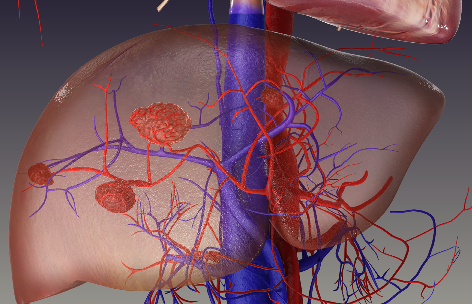About mCRC Liver Cancer
How Do Tumors Develop?
The term "cancer" applies to many diseases that occur when the cells of the body multiply in an uncontrolled manner, grow into solid tissue lumps and invade healthy tissues.
The organ in which a cancer originated is called the "primary cancer site", and this site gives cancer its name, like liver cancer or colorectal cancer.
Cancer that has spread from the primary site to another organ (e.g, the liver or lungs) is called metastatic or secondary cancer.
